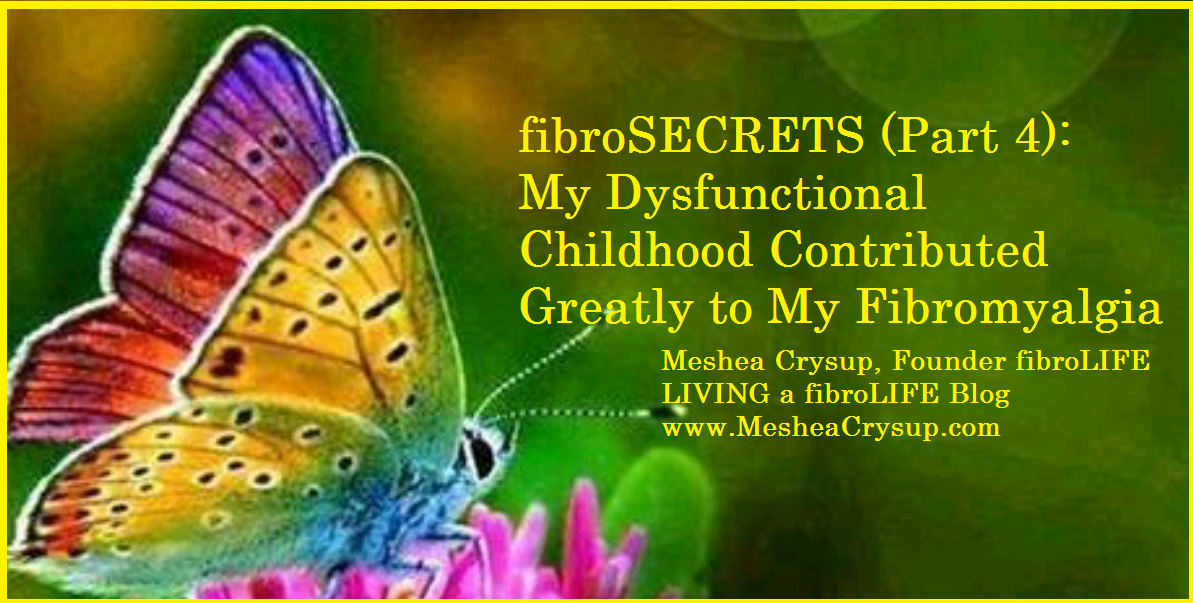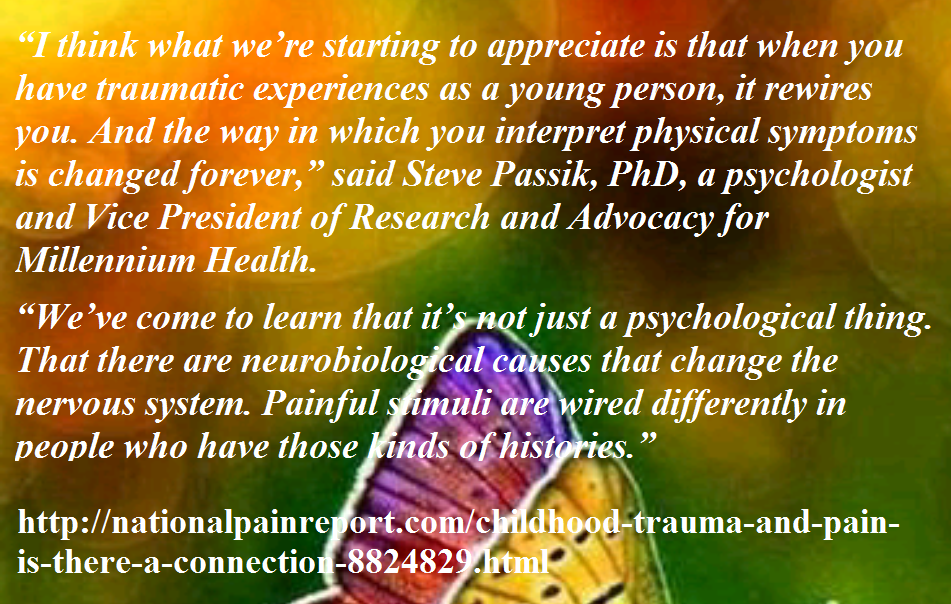 fibroSecrets (Part 4): My Dysfunctional Childhood Greatly Contributed to My Fibromyalgia (Part 4 of On-going Series) by Meshea Crysup I do not talk about this for sympathy or to belittle anyone involved. I discuss it because secrets hurt—especially fibroSecrets© Daddy is still alive. I visit him, we talk on the phone, etc. We never discuss the past. In his mind, it never really happened. He always blocked it out as soon as it was over. What purpose would it serve to make him face the truth at this point? He is 80+ years old. I forgave him long ago, for both our sakes—but mostly for mine. Meshea Crysup Founder of fibroLIFE© & LIVING a fibroLIFE© Fibromyalgia Patient-Expert, Blogger, Author, & Speaker One of the major problems those with Fibromyalgia (FMS) have is non-restorative sleep. For some, going to sleep is the issue. For others, it is staying asleep. Sadly, for many, it is both! Regardless, when one has FMS, one does not reach the level of sleep necessary to actually be, let alone feel, truly rested, restored, and rejuvenated. As a result, the body does not heal nor or replenish all the chemicals needed. This contributes to fibro fog, mental health issues (anxiety, depression, bi-polar, etc.), damaged/non-repaired muscles, and debilitating fatigue just to name a few of what is actually a very extensive list! As I have previously shared about my pain and other FMS symptoms, my non-restorative sleep issues also are a part of my earliest memories. I cannot remember a time when I was not afraid. I grew up at knife point, gun point, and on the other end of a fist. There is much more to the story, but you get the picture. Terrified each night, I literally replayed entire episodes of Gilligan’s Island in my mind, inserting myself into the storyline, for mental distraction and emotional escape. I would eventually sleep, but I often felt as if I had not. Perhaps I was predisposed and this was the trigger, but I cannot--and I do not—say this was the cause of my FMS. I am positive, however, that it contributed to a “perfect storm situation” in which Fibromyalgia could, and did, thrive. I am not alone in this—I am not the only one with this fibroSecret©. How Does This Connect to Fibromyalgia? Researchers have found that the hippocampus, which is the part of the brain responsible for short and long-term memory, is altered in abused patients. “Re-remembering” of pain and perceiving pain more intensely—two things connected to FMS—are possibly related to this change or even other, unidentified changes. Is This a Slippery Slope for FMS Advocates?
Some fibroVOICES© I greatly respect have expressed their discomfort with articles on this link between childhood abuse and FMS. I understand the concerns of contributing to the notion still held by far too many that “FMS is all in the head”. This link however, in my opinion, actually further validates FMS as a legitimate illness. The fact is, without a “psych diagnosis”, the government (Social Security Administration) does not acknowledge the diagnosis of FMS. Non-restorative sleep’s integral part in FMS and its subsequent effects, provide a legitimate explanation for this. I believe we have far more to fear in keeping this fibroSecret© than we do in encouraging speaking up and getting the help needed. In fact, for me, making the connection between my life-long depression and anxiety, my dysfunctional childhood, and FMS gave me a greater understanding of the complexities of my illness. It was the first step in my accepting that I did need to take antidepressants and ant-anxiety meds. This is an important part of my personal FMS treatment plan. In fact, it is the very aspect of it that has physiologically enabled and psychologically empowered me to more fully LIVE my fibroLIFE©.
0 Comments
Leave a Reply. |
Archives
January 2020
|




 RSS Feed
RSS Feed
